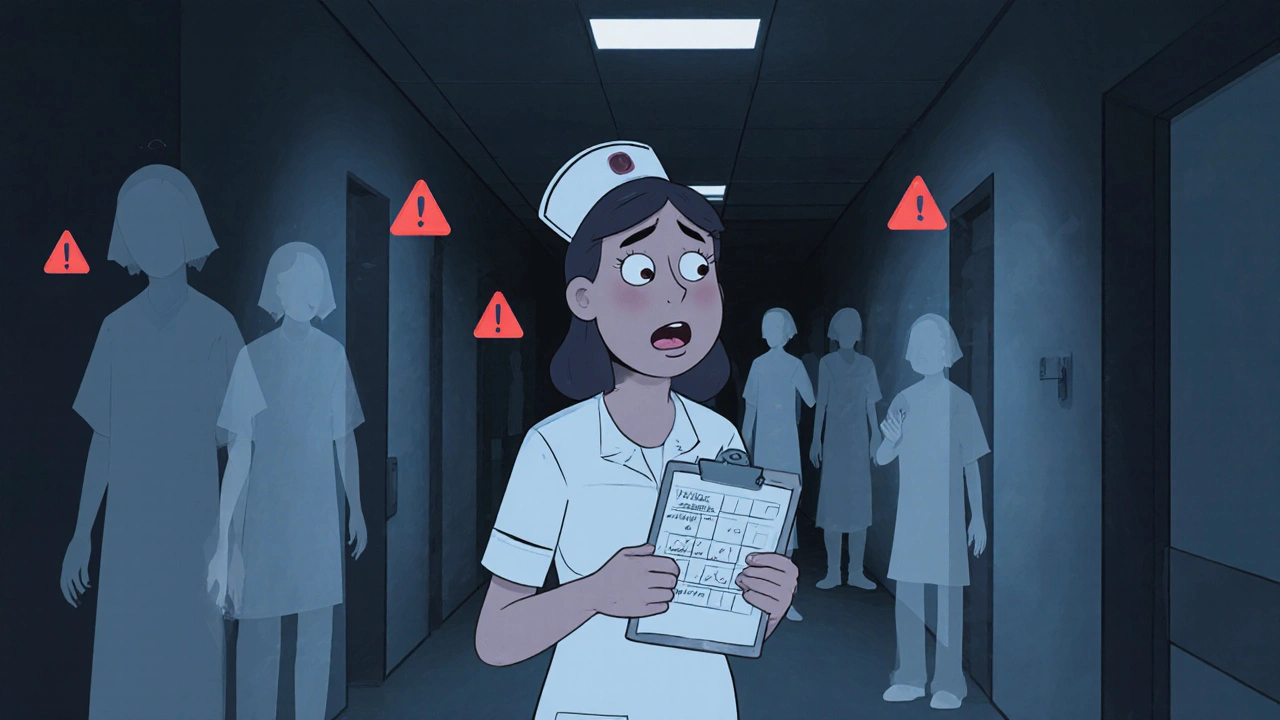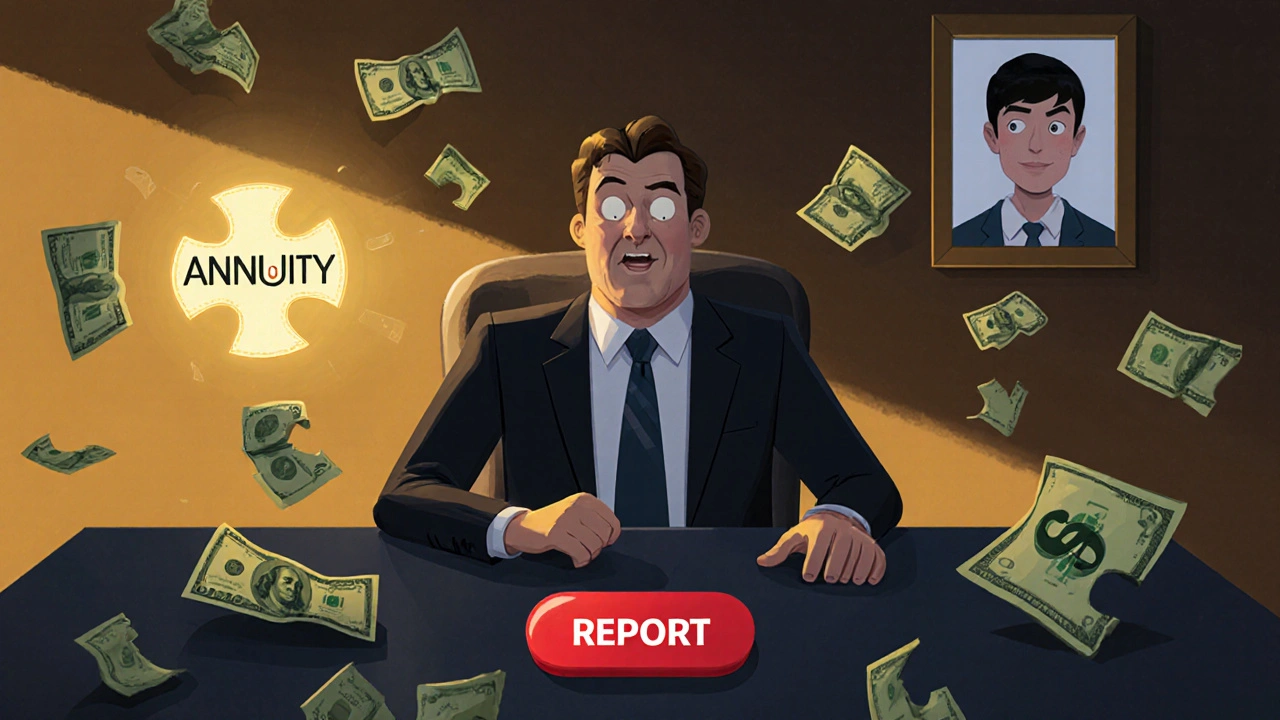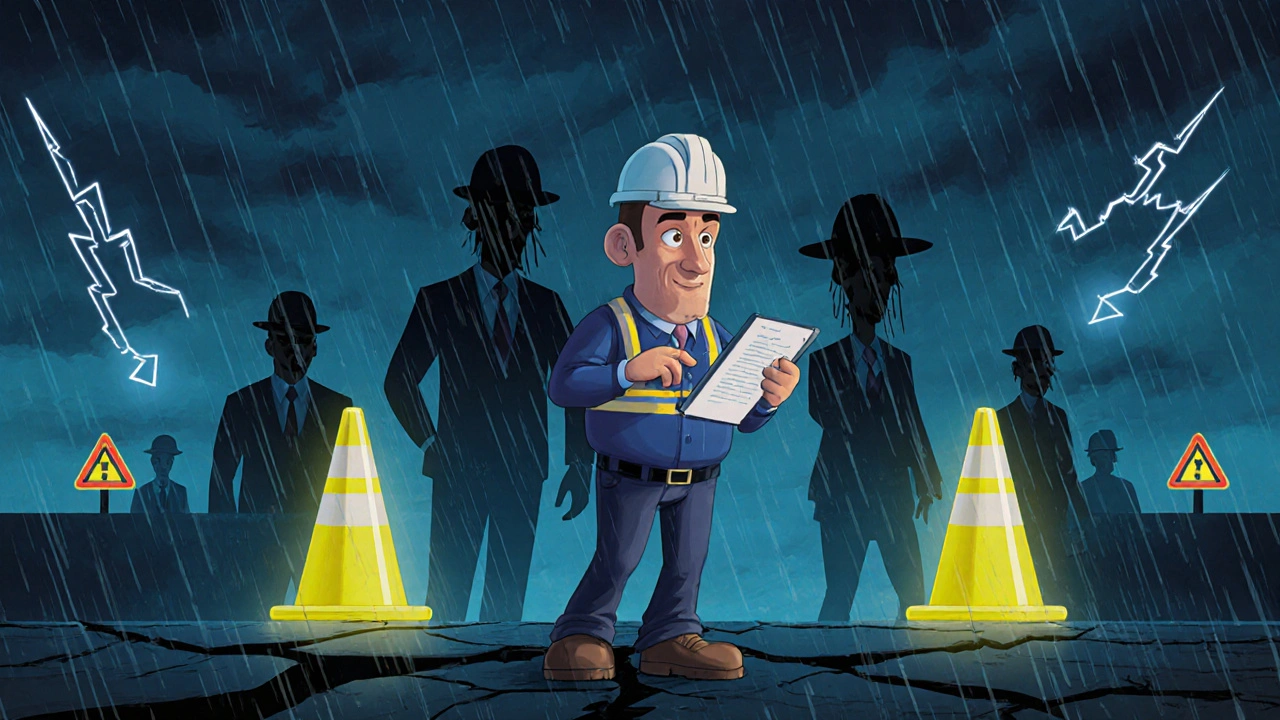Ethics CE Courses: Real-World Case Studies and Dilemmas for Professionals
 Nov, 3 2025
Nov, 3 2025
You’ve been in your job long enough to know that ethics isn’t just a checkbox on a training form. It’s the quiet moment when you’re pressured to cut corners, the email you hesitate to send, the client who asks for something that feels wrong-but isn’t technically illegal. That’s where ethics CE courses stop being theory and start saving careers.
Why Ethics Training Isn’t Just Another Requirement
Most professionals take ethics continuing education because they have to, not because they want to. But the best courses don’t just list rules-they show you what happens when those rules break down. In 2024, the American Medical Association reported that 68% of disciplinary actions against licensed professionals started with a small ethical lapse that went unchallenged. Not fraud. Not theft. Just a decision that seemed harmless at the time.
Take a nurse who fills out a form with a slightly inflated patient acuity score so her unit gets more staffing. She thinks she’s helping. But that one tweak starts a chain reaction: other units get understaffed, patients suffer, audits uncover the pattern, and suddenly her license is on the line. Ethics CE courses that work don’t say, "Don’t falsify records." They say, "Here’s what happened when a nurse did-and how three others caught it before it blew up."
Healthcare: The Weight of a Signature
In healthcare, ethics isn’t abstract. It’s in the chart you sign at 2 a.m. after a 14-hour shift. A 2023 study in the Journal of Medical Ethics followed 1,200 nurses across five states. Half had been asked to backdate medication logs to match billing cycles. One-third did it. Why? Fear of reprimand. Fear of losing their job. Fear of letting their team down.
A real case study from a Texas hospital: A nurse noticed a physician consistently ordering unnecessary CT scans for Medicare patients. The scans were billed as "routine follow-ups," but the patients had no symptoms. The nurse reported it anonymously through her hospital’s ethics hotline. Within six weeks, the physician was under investigation. The nurse was praised in the annual ethics report-and quietly sidelined by her department. That’s the real dilemma: doing the right thing can cost you.
Good ethics CE courses don’t tell you to be a hero. They teach you how to document, who to contact internally, and how to protect yourself while speaking up. They show you templates for anonymous reports, scripts for talking to supervisors, and the legal protections under the False Claims Act.
Finance: The Gray Area Between Compliance and Exploitation
Financial advisors face pressure every day. Clients want higher returns. Firms want higher commissions. The line between "strategic allocation" and "churning accounts" is thin-and often drawn by someone else’s bonus structure.
A case from a Florida firm in 2024: A senior advisor moved $450,000 from low-fee index funds into high-commission variable annuities for 12 elderly clients. He claimed it was "risk mitigation." But the clients had no need for liquidity restrictions or surrender charges. One client died six months later. Her daughter found the paperwork and sued. The advisor lost his license. The firm paid $2.1 million in settlements.
What made this case different? The advisor had taken an ethics CE course just six months before. The course included a simulation: "You’re told to sell annuities to retirees. Your compliance officer says it’s fine. Your gut says no. What do you do?" Most trainees picked the "safe" answer: follow orders. But the course didn’t stop there. It showed them the SEC’s "reasonable basis" test and how to flag suspicious transactions using Form CRS disclosures. That’s the difference between a course that checks a box-and one that changes behavior.
Engineering: Safety vs. Schedule
Engineers don’t usually lie. But they do omit. They say, "It’s within tolerance," when it’s on the edge. They sign off on designs that "should be fine," even when they’ve never tested them under real-world stress.
In 2023, a bridge inspection in Arizona revealed corrosion in load-bearing bolts that exceeded federal safety thresholds. The lead engineer knew. But the project was two weeks behind. The contractor threatened to fire him if he delayed. He signed off. Three months later, a section of the bridge collapsed during rush hour. No one died-but three people were injured. The investigation found 17 prior warnings that had been buried in emails.
Top ethics CE courses for engineers don’t just cover codes of conduct. They walk you through the exact moment you’re asked to sign off on something you’re not sure about. They give you phrases like: "I need 48 hours to validate this under live load conditions," or "I’m not comfortable certifying without third-party verification." They teach you how to escalate without sounding like you’re undermining your team.

Legal: Confidentiality in the Age of Slack
Lawyers are bound by attorney-client privilege. But in 2025, that’s harder than ever. A paralegal accidentally sends a draft brief to the wrong client group via Slack. A junior associate forwards a redacted memo to a friend "for feedback." A partner uses an unsecured cloud drive to store case files.
A New York law firm had a trainee who shared a case strategy with a friend who worked for a competing firm. The friend didn’t use the info-but the fact that it was shared was enough to trigger a bar investigation. The trainee lost her license. The firm lost two major clients.
Modern ethics courses for legal professionals now include simulations based on real Slack and email logs. They show you how to spot risky language: "Just between us," "Don’t tell anyone," "This isn’t official." They teach you how to use secure file-sharing tools approved by your state bar, and how to report a colleague’s breach without being labeled a snitch.
Education: When Loyalty Conflicts With Integrity
Teachers are expected to be role models. But what happens when your principal pressures you to inflate grades to keep funding? Or when you know a colleague is grading unfairly but fear retaliation?
A public school in Arizona faced a scandal in 2024 when standardized test scores jumped 40% in one year. An audit found teachers were giving students answers during testing. One teacher came forward anonymously. She was offered a promotion. Then, her classroom was moved to a storage closet. The principal called her "disruptive."
Good ethics CE courses for educators don’t just say "don’t cheat." They show you how to respond when your boss says, "We need these numbers." They give you state-specific whistleblower protections. They teach you how to file a formal complaint with the state department of education-and what to expect after you do.
What Makes an Ethics CE Course Actually Work?
Not all ethics courses are created equal. Here’s what separates the ones that change behavior from the ones that just collect dust:
- Real cases, not hypotheticals. If it sounds like a textbook, it won’t stick. Look for courses that use anonymized but detailed real-world incidents from your industry.
- Decision points, not lectures. The best courses make you choose: "Do you report this? Do you stay silent? Do you talk to HR?" Then they show you the consequences of each path.
- Legal and institutional protections spelled out. Know your rights before you speak up. A good course tells you exactly which laws protect you and how to access them.
- Peer stories. Hearing from someone who did the right thing-and survived-makes it feel possible.
- Updates every year. Ethics evolves. New tech, new laws, new pressures. Your course should reflect 2025, not 2018.

Where to Find Quality Ethics CE Courses
Start with your professional licensing board. They often approve and list accredited providers. Avoid courses that are just 30-minute videos with a quiz at the end. Look for:
- Interactive case studies with branching scenarios
- Content co-developed with ethics committees or professional associations
- Post-course access to a live ethics hotline or discussion forum
- Certification that includes a badge or digital credential you can share
For healthcare professionals: Check the Joint Commission’s ethics resource center. For engineers: NSPE (National Society of Professional Engineers) offers case-based modules. For financial advisors: CFP Board’s ethics portal includes real disciplinary cases. For educators: State-level teacher associations often have ethics workshops tied to licensure renewal.
What Happens When You Skip Ethics Training
Some professionals think, "I’m not a bad person. I don’t need this." But ethics violations don’t start with malice. They start with complacency. One missed deadline. One ignored warning. One "everyone does it" excuse.
In 2024, the American Bar Association reported that 72% of lawyers facing disciplinary action had not completed ethics CE in the prior two years. The same pattern shows up in nursing boards, engineering licensure reviews, and financial regulator filings.
Skipping ethics training isn’t just risky. It’s lazy. And in a world where one text message or signed form can end your career, you can’t afford to be lazy.
Final Thought: Ethics Isn’t About Being Perfect. It’s About Being Prepared.
You won’t always know the right thing to do. But if you’ve practiced the hard choices in a safe space-seen the consequences, heard the stories, rehearsed the responses-you’ll be ready when it matters.
That’s the real value of ethics CE courses. Not the certificate. Not the credit hours. But the quiet confidence that comes when you know you’ve thought it through-and you’re not alone.
Are ethics CE courses required for all licensed professionals?
Yes, in most regulated professions-healthcare, law, engineering, finance, education, and accounting-ethics continuing education is mandatory for license renewal. The number of hours and specific content vary by state and licensing board, but the requirement is widespread. Skipping it can result in license suspension or non-renewal.
Can I take ethics CE courses online?
Absolutely. Most ethics CE courses today are delivered online, with interactive modules, video case studies, and live Q&A sessions. Many state boards now approve fully online courses as long as they include active learning components-not just passive video watching. Always check your licensing board’s list of approved providers before enrolling.
What if I’ve already taken an ethics course this year? Do I need another?
It depends. Some professions require ethics training every year, while others allow it every two years. Also, the content must meet your board’s specific criteria. A course on general ethics might not cover industry-specific dilemmas your board requires. Always verify that your course is approved for your license type and renewal cycle.
How do I know if an ethics course is reputable?
Look for courses developed in partnership with your professional association or licensing board. Check if the provider is accredited by a recognized body like the IACET (International Accreditors for Continuing Education and Training). Read reviews from other professionals in your field. Avoid courses that promise "easy credit" or don’t include real case studies and decision-making exercises.
What should I do if I witness an ethics violation at work?
Document everything-dates, names, emails, conversations. Then, follow your organization’s ethics reporting protocol. If none exists, contact your professional licensing board’s confidential ethics hotline. Most states have whistleblower protections that shield you from retaliation. Don’t wait until it’s too late. Speaking up early can prevent harm to others and protect your own career.
Adrienne Temple
November 3, 2025 AT 21:10This hit me right in the gut. I once signed off on a chart with a tweaked acuity score just to get my team through the shift. Thought I was helping. Turns out I was just delaying the collapse. Ethics training isn’t about fear-it’s about having a playbook when your gut screams but your boss says ‘just do it.’ 🙏
Sandy Dog
November 4, 2025 AT 16:50OH MY GOD. I just cried reading the part about the nurse in Texas. Like… she did the RIGHT THING and got sidelined?? That’s not justice, that’s a horror movie. I’m not even in healthcare and I’m shaking. Someone needs to make a documentary about this. Like, NOW. 😭💔
Nick Rios
November 6, 2025 AT 05:29There’s something powerful in how this post shows ethics isn’t about black-and-white rules-it’s about the weight of silence. I’ve been in engineering for 18 years. I’ve seen too many ‘it’s within tolerance’ moments. What stuck with me most? The phrase: ‘I need 48 hours to validate this under live load conditions.’ That’s not defiance. That’s professionalism with backbone.
Amanda Harkins
November 7, 2025 AT 21:55It’s funny how we call it ‘ethics training’ like it’s a class you take to learn how to be good. But really, it’s a survival guide for when the system asks you to betray yourself. And the worst part? The system always wins unless you’ve got documentation, allies, and a damn good lawyer on speed dial. I’ve seen good people disappear because they trusted the process.
Jeanie Watson
November 8, 2025 AT 05:07Yeah, I took mine last year. It was a 20-minute video with a quiz. Got my certificate. Didn’t remember a thing. Probably why I’m still here.
Tom Mikota
November 8, 2025 AT 21:34Wait-you’re telling me someone actually used the phrase ‘just between us’ in a professional setting? And didn’t get fired on the spot? I mean, come on. That’s not a red flag-that’s a full-blown neon sign with a kazoo solo. If your workplace has Slack and you’re saying ‘don’t tell anyone,’ you’re already on the way out. Fix your culture before you fix your training.
Mark Tipton
November 9, 2025 AT 22:19Let’s be honest: 90% of these ‘ethics case studies’ are manufactured by compliance vendors to sell overpriced LMS platforms. The real issue? Corporate culture incentivizes bending rules. The nurse didn’t falsify records because she was unethical-she did it because her hospital underfunded staffing by 40%. The engineer signed off because the contractor threatened to fire him. The advisor sold annuities because his bonus structure was designed to reward exploitation. Blaming individuals is lazy. Fix the system-or stop pretending ethics training fixes anything.
Adithya M
November 11, 2025 AT 13:07Bro, this is why I push my juniors to take real ethics courses. Not because I’m a saint, but because I’ve seen people lose everything over one bad call. In India, we don’t have the same legal protections-but we still have to live with our choices. I tell them: ‘Your name is on every document. Make sure you can look at it in the mirror.’
Jessica McGirt
November 11, 2025 AT 15:04Thank you for writing this. I’m a teacher in Arizona. The 40% score jump scandal? That was my school. I didn’t report it-because I was terrified. But I started keeping personal logs. Every grade change. Every pressure moment. I didn’t confront anyone. But I documented everything. Two years later, the state auditor called me. I wasn’t a hero. I was just prepared. This post? It’s the handbook I wish I’d had.
Donald Sullivan
November 12, 2025 AT 14:47Yeah, sure. Ethics training. Meanwhile, my boss just told me to ‘repackage’ a client’s portfolio as ‘conservative’ so we don’t trigger compliance flags. It’s the same damn funds. Same risk. Just different labels. If I don’t do it, I’m out. If I do, I’m complicit. So tell me-what’s the ethical CE course for when your job depends on lying?
Tina van Schelt
November 13, 2025 AT 19:30I used to think ethics was about doing the right thing. Now I know it’s about surviving while doing it. It’s about knowing who to whisper to in the break room. Which email chain to CC. Which hotline to call when your HR rep says ‘we’re looking into it’ and you know they’re not. It’s not about being perfect-it’s about being smart enough to not become a cautionary tale.
Ronak Khandelwal
November 13, 2025 AT 20:35Every time I read something like this, I think: what if we trained people not just to follow ethics, but to *feel* them? Like, what if ethics wasn’t a course-but a culture you breathed? Imagine a world where your gut reaction wasn’t ‘can I get away with this?’ but ‘would I be proud of this in ten years?’ That’s the real curriculum we’re missing. 🌱
Jeff Napier
November 14, 2025 AT 01:19Let’s be real-ethics training is just corporate theater. They don’t want you to speak up. They want you to think you did something by checking a box. The same people who make you take this course are the ones who reward the people who cut corners. And the whistleblower? They don’t get praised. They get ghosted. This whole post is just a pretty lie to make us feel better while the machine keeps grinding.